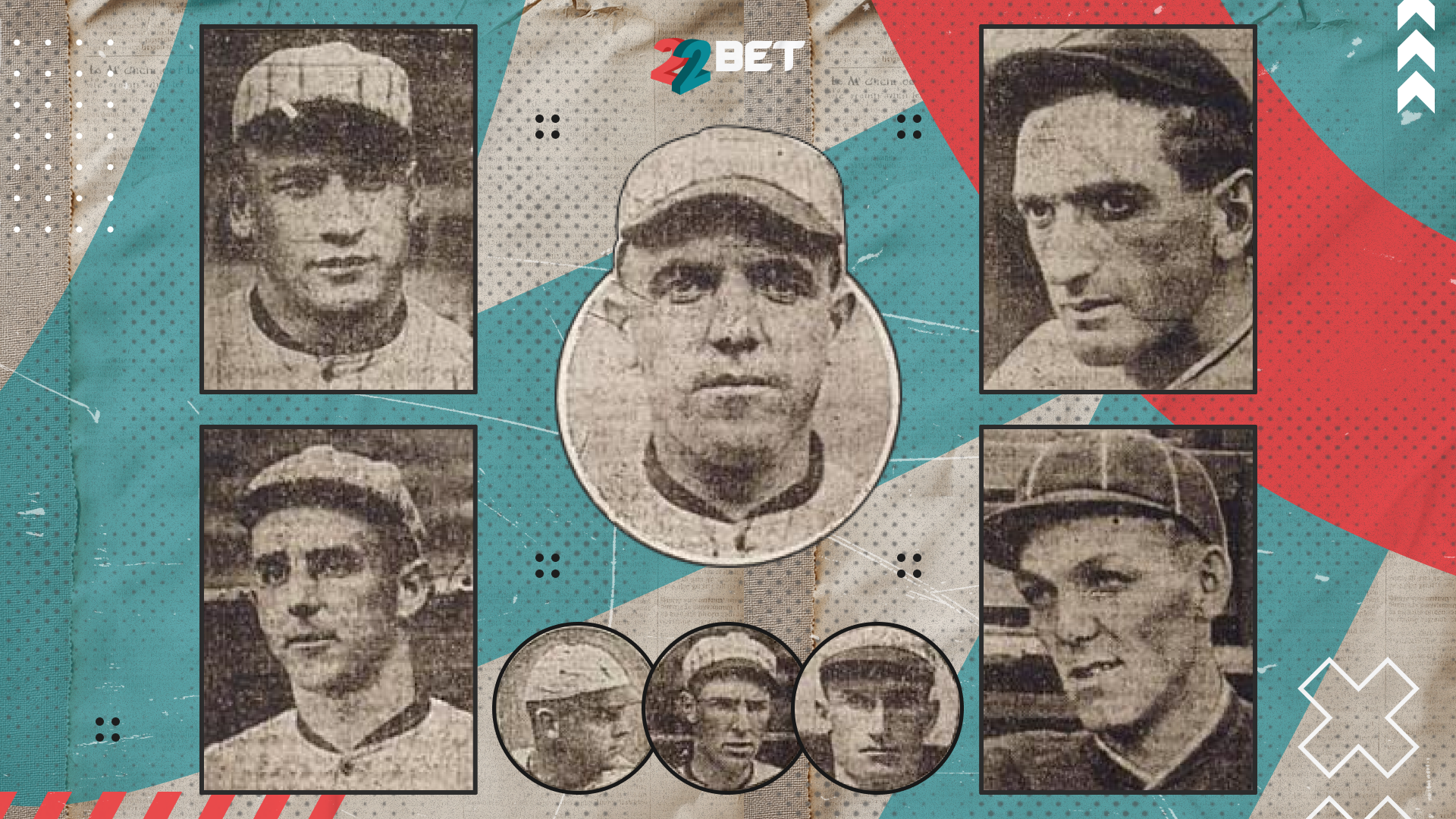Over the years, major-league baseball has had many memorable teams, but only a few are as infamous as the 1919 Chicago WhiteSox. Almost a century later, the Black Sox Scandal remains controversial and surrounded by confusion. However, one fact is clear: talented players from that White Sox team worked with gamblers to fix the outcome of the 1919 World Series. Keep reading to discover more about what happened and how it all went down.
Overview of the Black Sox Scandal
The Black Sox Scandal happened during the 1919 World Series when eight Chicago White Sox players were accused of purposely losing games for money from gamblers. This shocking event shook the sports world, changed baseball forever, and led to the creation of the Commissioner of Baseball.
Detailed History of the Black Sox Scandal


The Black Sox Scandal is a well-known event in American baseball history. In this story, eight Chicago White Sox players were accused of taking bribes to lose the 1919 World Series to the Cincinnati Reds. The players involved were pitchers Eddie Cicotte and Claude “Lefty” Williams, first baseman Arnold “Chick” Gandil, shortstop Charles “Swede” Risberg, third baseman George “Buck” Weaver, outfielders Joe “Shoeless Joe” Jackson and Oscar “Happy” Felsch, and utility infielder Fred McMullin. They received between $70,000 and $100,000 to lose the series, which let the Reds win five games to three.
After the World Series, some people, including sportswriter Hugh Fullerton, suspected foul play. Yet, those concerns disappeared when the 1920 season started. In September 1920,though, a grand jury started investigating claims of gamblers that influenced baseball. On September 28, 1920, after confessions from Cicotte, Williams, Jackson, and Felsch, White Sox owner Charles Comiskey suspended seven players. Gandil was already suspended because of a salary dispute.
In the summer of 1921, these accused players went to trial but were acquitted on August 2 because there wasn’t enough evidence. Essential documents, like the players’ confessions, disappeared mysteriously and were probably stolen. The very next day, on August 3, the new baseball commissioner, Judge Kenesaw Mountain Landis, banned the eight players from the game for life.
A few suspected gamblers took the stand at the trial, and none faced charges for bribing the White Sox. New York gangster Arnold Rothstein was mentioned as the likely supporter of the scheme, but he wasn’t put on trial either.
The Chicago White Sox in 1919
The Chicago White Sox are a professional baseball team from Chicago that play in the American League (AL). They have won three World Series titles: in 1906, 1917, and 2005. Known as the “South Siders,” this nickname sets them apart from Chicago’s other central league team, the Cubs.
The team started as the Sioux City Cornhuskers, a minor league founded in 1894. Charles Comiskey bought the team after its first season, moved it to St. Paul, Minnesota, and then to Chicago in 1900. They joined the American League in 1901 and won the first league title that year. Originally called the White Stockings, they actually became the White Sox in 1904.
The team’s reputation suffered for years because of their involvement in the 1919 World Series. Some Chicago players, including outfielder Shoeless Joe Jackson, were involved in a plot to let the Cincinnati Reds win by fixing the scandalous games. This became known as the Black Sox Scandal. The eight players involved were banned, which hurt both the team’s and the sport’s image. Afterward, the White Sox game struggled for 86 seasons, winning only one AL pennant in 1959 with the “Go-Go Sox” and a division championship in 1983 with a team known for “winning ugly.”
The State of Baseball in the Early 20th Century
In the early 1900s, baseball was incredibly popular. Yet, the game faced many difficulties. It was America’s favorite sport, which captured the nation’s attention. Major League Baseball was becoming more popular, and everyone looked forward to the World Series each year. People everywhere loved the game, showing just how much it brought everyone together.
Baseball games got a lot of attention from the growing sports media, and players like Ty Cobb, Babe Ruth, and Honus Wagner became national heroes. The sport’s deep roots in American culture made it very popular.
Even though the sport could make a lot of money, players weren’t paid much. Owners who controlled the cash focused more on cutting costs rather than paying players fairly. This imbalance caused a lot of frustration. Players had little say in their careers. This led to unhappiness and sometimes financial issues.
Back then, betting on baseball was common, with gamblers and bookies often getting involved in the games. With hardly any rules, the game was prone to cheating and match-fixing. Rumors about game-fixing and players working with gamblers popped up now and then, but the Black Sox Scandal showed just how big the issue really was. This lack of oversight hurt the sport’s integrity.
Mlb Betting Scandal Unfolds
Before the World Series started, there were already rumors about the scandal. Eight Chicago White Sox players, later called the “Black Sox,” were accused of losing games on purpose to earn money from gamblers. Arnold “Chick” Gandil, the first baseman and supposed leader, and his teammates were rumored to have been offered a considerable sum to throw the series.
Planning the Fix
The Black Sox Scandal started because Chicago White Sox players were unhappy with their low pay and strict team owner, Charles Comiskey. Their frustration made them easy targets for gamblers. Arnold Rothstein, a well-known gambler, likely financed that scheme. He collaborated with people like Joseph Sullivan, Billy Maharg, and Abe Attell to offer the players significant amounts of money to lose the World Series on purpose.
The 1919 World Series: White Sox vs Reds
The 1919 World Series between the Chicago White Sox and the Cincinnati Reds became famous for a baseball gambling scandal. Unlike the usual best-of-seven format, this Series was a best-of-nine. Fans and the baseball community noticed unusual mistakes and poor performance from several White Sox players, which raised suspicions. In the end, the Cincinnati Reds won the Series 5-3 and were officially declared the champions, despite the oddities.
Discovery and Investigation
In the following months, whispers led to an official investigation. The press and public got suspicious because of strange betting patterns and the White Sox’s erratic performance. In September 1920, nearly a year after the Series, a grand jury in Chicago looked into corruption allegations in baseball. Key witnesses like Eddie Cicotte and “Shoeless” Joe Jackson confessed to being involved in the fix.
To win back the public’s trust, MLB appointed Judge Kenesaw Mountain Landis as the first Commissioner of Baseball. He had significant authority to clean up the sport. And one of his first moves was to ban the eight players involved in the scandal for life, even though they were found not guilty in court. This demonstrated his strict no-tolerance policy for gambling and corruption in baseball.
Who Were the 8 Players in the Black Sox Scandal

Arnold Rothstein, known as “The Big Bankroll,” was a wealthy New York gambler. He is believed to have financed the operation by bribing players. Joseph “Sport” Sullivan, a bookmaker from Boston, connected Rothstein with the players. Abe Attell, a former featherweight boxing champion turned gambler, acted as Rothstein’s intermediary, and handled direct communication with the players.
William “Sleepy Bill” Burns, a former major league pitcher, served as a go-between for the gamblers and the best White Sox players, helping to broker the agreement. Billy Maharg, a former boxer and gambler, also acted as an intermediary, facilitating communication and distributing bribe money to the players.
However, the main players in the scandal were:
- Eddie Cicotte
- Claude “Lefty” Williams
- Arnold “Chick” Gandil
- Happy Felsch
- Charles “Swede” Risberg
- Fred McMullin
- Buck Weaver
- “Shoeless” Joe Jackson
Legacy and Judicial Figures
Judge Kenesaw Mountain Landis, the first Commissioner of Baseball, was appointed to clean up the sport after the scandal. He banned the eight involved players for life. Charles Comiskey, owner of the Chicago White Sox, believed his management made the players more likely to join the fix.
Judge Charles A. McDonald led the grand jury investigation, resulting in accusations against players and gamblers. Sportswriter Hugh Fullerton exposed the scandal through his columns, highlighting the suspicious activities during the 1919 World Series.
The Trial and Its Aftermath
In September 1920, a grand jury examined corruption claims in the 1919 World Series. During this time, players like Eddie Cicotte and “Shoeless” Joe Jackson admitted that they were involved.
On October 22, 1920, eight famous White Sox players and some gamblers were charged with fixing the World Series. The trial happened in June 1921. Even with strong evidence, including confessions of some players, the jury found everyone not guilty on August 2, 1921. This was due to lost or compromised evidence and strong defense arguments.
Impact on the Players and Their Careers
Eddie Cicotte, once a star pitcher, was banned from baseball for life and never played professionally again. Claude “Lefty” Williams, another key pitcher, also faced a lifetime ban, ending his career early.
“Shoeless” Joe Jackson, one of the game’s greatest hitters, remains a controversial figure in the scandal. Despite his Series performance, he was banned for life. Buck Weaver, who didn’t accept money but knew about the fix and stayed silent, also received a lifetime ban. The other players involved faced similar fates, with their careers cut short and their reputations forever damaged.
Changes in Baseball
When Judge Kenesaw Mountain Landis became the first Commissioner of Baseball, it changed how the sport was run. He had a lot of power to enforce rules and keep the game honest. His tough actions, like banning players for life, created a strict no-tolerance approach to gambling and corruption that set a standard for the future.
Baseball introduced new rules and ethical standards to avoid scandals and improve transparency. This includes stricter player behavior guidelines and increased monitoring of team activities.
The Black Sox Scandal was crucial in restoring trust in baseball, pushing the sport towards better ethics, and keeping it America’s favorite pastime.
Legal Proceedings of the Black Sox Scandal and Cultural Impact
The Black Sox Scandal went beyond just sports and became a significant part of American culture and history. You can see its impact in many different ways. such as:
Literature and Media
The scandal has sparked many books, films, and documentaries. Eliot Asinof’s 1963 book “8 Men Out,” which became a film in 1988, gives a detailed look at the events. The story still fascinates audiences and makes us think about ethics in sports.
Symbol of Corruption
The term “Black Sox” now stands for betrayal and corruption in sports, warning us about the risks of sacrificing integrity for money.
Legends and Myths
Iconic players like “Shoeless” Joe Jackson have turned parts of the scandal into myths. His claimed innocence and outstanding performance during the Series make the story more complex and tragic.
Cultural legacy of the Black Sox Scandal
This scandal also reflects common issues of the early 20th century, like labor strikes, widespread gambling, and balancing personal morals with money issues.
Conclusion
The Black Sox Scandal was a big event in baseball that uncovered a lot of corruption and led to key changes to keep the game fair. It revealed issues like low player pay, poor management, and the impact of gambling in baseball in the early 1900s. Following the scandal, Judge Kenesaw Mountain Landis put new fair play rules in place for sports. This event reminds us of the importance of integrity and the long-term impact of unethical actions.



















